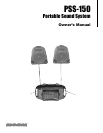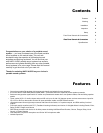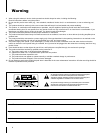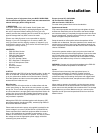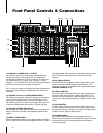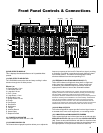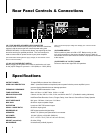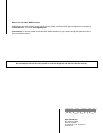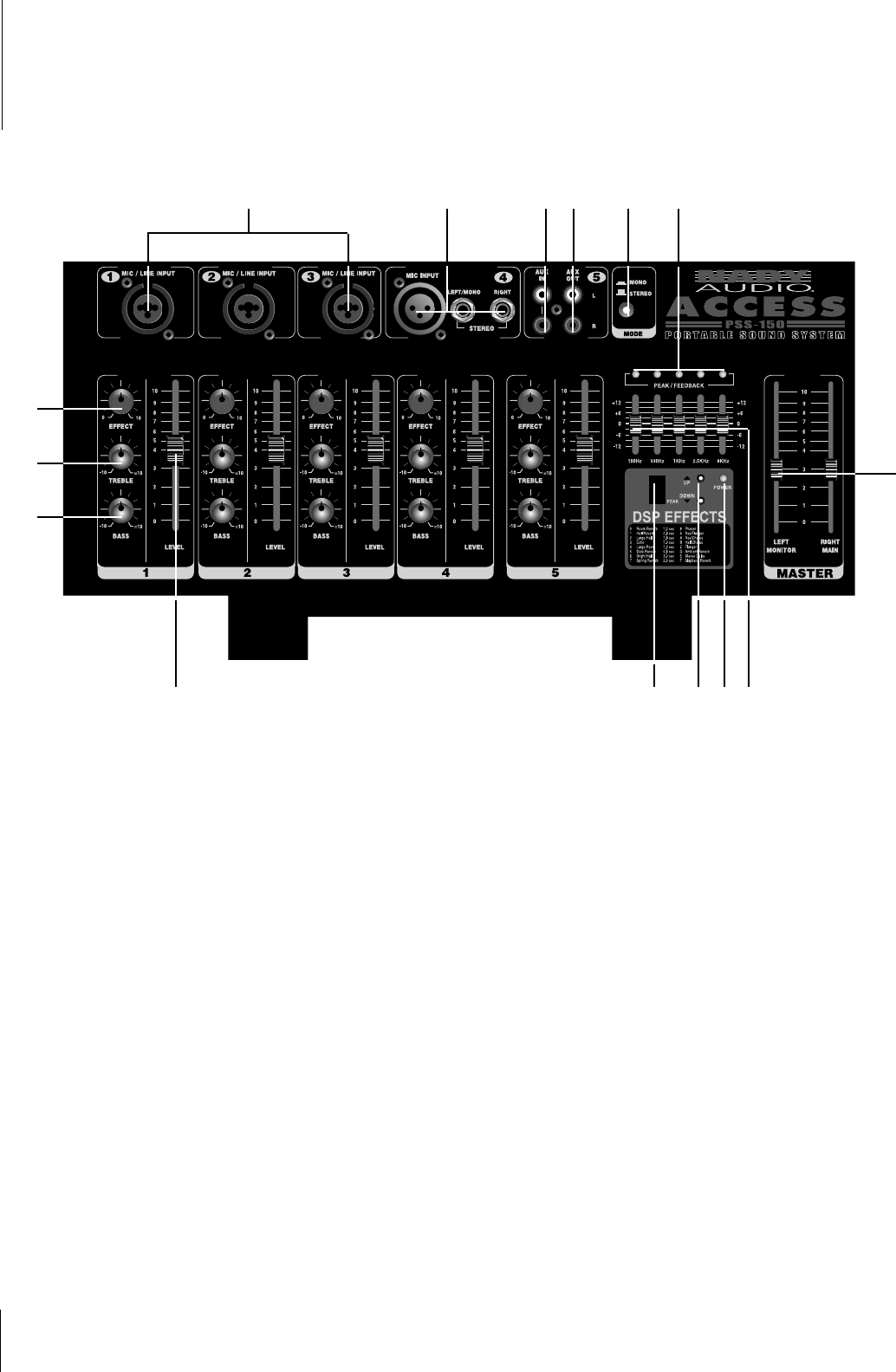
(1) CHANNEL 1-3 COMBO XLR / 1/4’ INPUT
The XLR mic inputs are an electronically balanced XLR type
designed to accept mic level signals from any balanced or
unbalanced low impedance (Low Z) microphone. The XLR jacks
are configured for: Pin1 = ground, Pin2 = positive (+), Pin3 =
negative (-). The XLR jacks have 15VDC phantom power applied
to Pin2 and 3 for powering condenser microphones.
The 1/4” mono line inputs are designed to accept unbalanced line
level signals such as those from keyboards, drum machines, or
samplers.
(2) CHANNEL 4 XLR & 1/4” STEREO/MONO INPUTS
The XLR input is balanced, designed to accept mic level signals,
and has 15VDC phantom power. The Left and Right 1/4” line
inputs are for connecting stereo line level audio signals or only
the Left/Mono jack can be used for connecting mono signals. The
XLR input is defeated when either of the 1/4” inputs are used.
(3) CHANNEL 5 STEREO RCA INPUTS
The stereo RCA line level inputs can be used for connecting CD
players, Tape Decks, and other audio equipment with line level
outputs.
(4) MONO / STEREO MODE
When the Mono/Stereo button is out (stereo mode) the Left RCA
Aux In is sent to the Left Speaker and Right RCA Aux In is sent to
the Right Speaker. When the button is depressed (Stereo mode),
both L and R RCA input signals are mixed and sent to both
speakers.
(5) EFF SEND CONTROL
The EFF SEND control adjusts the level of signal sent by each
channel to the internal DSP (Digital Sound Processor). The
signal sent is mono, post-Treble/Bass and will be affected by the
CHANNEL FADER (8) setting.
(6) TREBLE CONTROL
Turn to the right to boost high frequencies, adding crispness too
percussion from drum machines, cymbals and synths. Turn to
the left to cut these frequencies, reducing sibilance or hiss. The
control has a shelving response giving +/-10dB of boost or cut at
10kHz.
(7) BASS CONTROL
The bass control shelving response gives 10dB of boost or cut
at 100Hz. Add warmth to vocals or extra punch to guitars, drums
and synths by turning to the right. Turn to the left to reduce stage
rumble, hum or to improve a mushy sound.
(8) CHANNEL FADER
The channel faders determine the output signal level to the
Master Mix bus. They offer a smooth logarithmic taper more often
associated with much more expensive consoles for optimum
control of the signal.
(1)
(5)
(6)
(7)
(8)
(15)
(12)(11)(10)(9)
(2) (3) (4) (13)(14)
5
Front Panel Controls & Connections



